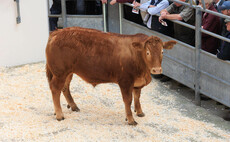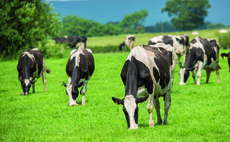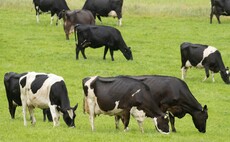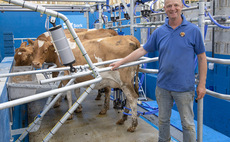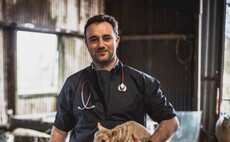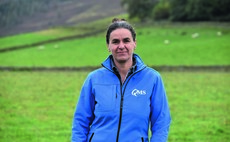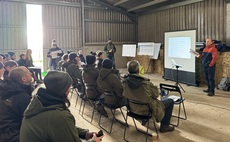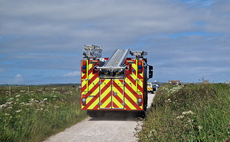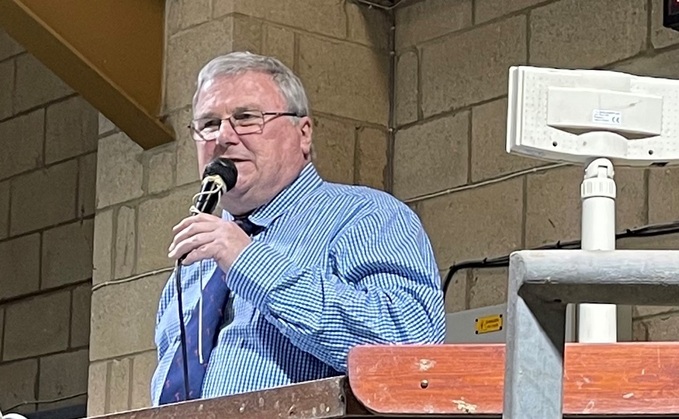
Iain Soutar on the strength of trade.
Covid-19 has been a terrible pandemic, disrupting life for everyone and causing much suffering and loss.
However, unlike previous crises involving animal health, the livestock industry, including markets, has seen a positive economic effect.
Once the original disruption to trade was over, prices have generally continued on an upward curve which has only accelerated since the New Year. How long can this last? We now face another change with the gradual reopening of pubs and restaurants.
There is no doubt the different way of life many people have been undertaking has benefited British meat sales; suddenly people have had time to cook at home and placed much more emphasis on preparing good meals and shopping more locally.
With production down and retail sales up, particularly for steaks and roasting joints, we have seen what happens when demand starts to outstrip supply and how bidding in the livestock markets can move prices forward very quickly, particularly for sheep which react more quickly than cattle.
Interestingly, retail prices have not gone up in the same way yet and producers are getting a bigger slice of the cake. Although as auctioneers we have been coming off the rostrum, or away from the sheep lines, with a satisfied smile on our faces, in truth we have little more power to make the price go up as we have to stop it going down, it is all about market forces, let us hope prices are sustainable.
So what can go wrong? Obviously people's way of life will start to revert more to the way it was and the foodservice industry will draw in more foreign meat. Furlough will end at some point and there will a big hit to disposable income at a time when there will be more things available to spend money on.
A trade deal with a major foreign country with lower production costs is a major worry, particularly if Government wants to keep prices in check and we understand there are still problems with exports.
This latest price increase must also be taken in context with the fact average livestock prices only increased about 10 per cent between 2014 and 2020, whereas the first three months of 2021 have seen average store cattle prices rise by 20 per cent on last year and hogget prices by more than 25 per cent, getting them back to much more acceptable levels.
Reserves
As livestock auctioneers, we should take the opportunity to bolster our reserves, undertake any maintenance and equipment upgrades that have been waiting and make sure we do not chase the business too hard with incentives to sellers or buyers just to lure them away from a competitor.
We must also keep an eye on credit; recent LAA figures showing livestock market turnover of £1.8 billion is very encouraging, but they also mean markets are underpinning the livestock sector for about £34 million a week, while taking between 2.5-3.5 per cent commission before expenses, probably not a risk many businesses would take, especially as stock is generally taken before the money is in the bank.
If you take money on a debit card you are liable to lose more than a fifth of your commission in merchant fees.
At Salisbury Market, we have been particularly pleased to see store cattle and sheep numbers increase which, coupled with the higher prices and furlough, has helped mitigate the loss of income from other sales.
Frustratingly, it is hard to find enough cull cows and finished cattle to meet demand and this seems to be general across the country except in a few marts, particularly in the north where they also seem to be able to
achieve even bigger returns.
There are now customers for all weights, grades and ages of animal, assured or non-assured, which is why it is more advantageous than ever to use your local market unless you can hit the exact grade and weight your
abattoir demands. The trade in grazing cows and store hoggs has been strong and any lean types going straight in will have been ‘wasted'.
Iain Soutar
Iain Soutar is director of Southern Counties Auctioneers. Call 01722 321 215, or email [email protected]








